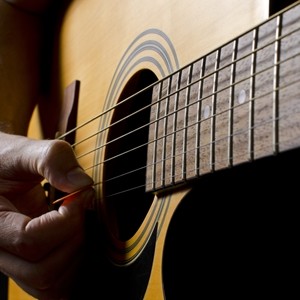
How to register a music copyright
November 12, 2015 4:54 pm Leave your thoughts
For independent musicians, songwriters and producers hoping to make a career out of their compositions, protecting intellectual property is one of the most important things you can do. In an era where sales of physical media have been overtaken by digital and streaming platforms offer low artist payouts, ensuring you can fully control how your music is used and sold is vital.
Your music copyrights will be the key to allowing you to sell your music commercially, music license agreements for its use in other artistic works and advertisements, as well as assisting in preventing and seeking restitution for plagiarism, unlicensed sampling and other infringement on your right as the creator of the work. Here is a guide what you need to know about the first and most important step towards protecting your intellectual property: registering a copyright.
What is a copyright?
A copyright is a an official acknowledgement by the government department the U.S. Copyright Office of the date of a work's creation, publishing and it's authorship. As the creator of an original work, you own it. Registering the copyright ensures that should the song's ownership be called into question, you have a government-recognized legal document spelling out it's yours—similar to the deed to a house.
What does a copyright cover?
Copyrighting a musical composition takes two basic but distinct form when referring to a published song:
- The "Sound Recording." Sometimes called the "master," this refers to the actual recorded version of the song being published. In the case of registering a published work, this means a recorded version of your performance of a song that may—or may not, in the case of performing a cover song—have been written by you. Arrangements of a song fall under this category. It doesn't protect authorship of the song but verifies you created the recording.
- The "Composition." This refers to the song itself: the words and basic melody. Unlike an arrangement where you are putting a personal spin on a pre-existing song or melody, this is meant to show that you created the original work—and thus have the right to grant permission for it to be used elsewhere, as well as entitle you to compensation for its use.
Worth noting is that a music copyright will not cover:
- basic chord progressions
- an overall idea or concept of a song
- titles or short lyrical phrases
How do I copyright my music?
Copyrighting music is very simple—the Copyright Office allows for online submissions of published and unpublished work. On their site you can also print forms and file them manually. There is a fee to copyright your work, but multiple songs can be submitted under a single application.
One tricky element can be determining whether to register the work as a Sound Recording or Performing Arts recording. This ties back into idea of recording versus composition: if you are the author of a work and want to register it's composition but don't care to register a particular recording, opt for the Form PA. If you are an artist covering another artist work or playing your own work, the Form SR will help you copyright the work.
What about "poor man's copyright"?
There are a few commonly-circulated copyright alternatives that are often put forth as a way to establish authorship without registering with the U.S. Copyright Office directly. The most common include physically mailing a recording of your song to yourself via certified mail and keeping it sealed or just publishing a recording on YouTube. Both of these methods are to be avoided. Neither of these methods are the most effective way to ensure that your copyright will stand up in a court battle.
At The Law Offices of Donald W. Hudspeth, P.C., we can help you with every aspect of entertainment law and copyright dispute resolution. We are here to help you protect your most valuable assets and give you the tools you need.
Categorised in: Asset & Liability Protection, Entertainment Law, Intellectual Property Law
This post was written by multi_admin




